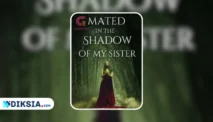The Bell Jar is also a powerful and relatable work for many readers, especially young women who face similar pressures and challenges as Esther. It offers a realistic and honest portrayal of mental illness and feminism, as well as a hopeful and empowering message of survival and transformation. It resonates with people who feel misunderstood, marginalized, or oppressed by society, and who seek to find their own identity and voice.
The Bell Jar is a timeless and universal tale of human experience, that speaks to the past, present, and future generations.
Conclusion
The Bell Jar is a novel by Sylvia Plath that explores the themes of mental illness and feminism in the 1950s. It follows the story of Esther Greenwood, a young woman who suffers from depression and attempts suicide, and who tries to find her place and voice in a society that does not value her aspirations and talents. The novel is a semi-autobiographical work, as it reflects Plath’s own struggles with mental illness, as well as her views on the role and expectations of women in the 1950s.
The novel is a classic of literature, and a landmark of feminist and autobiographical writing. It has influenced and inspired many writers and artists, and it has been adapted into various media. It is also a powerful and relatable work for many readers, especially young women who face similar pressures and challenges as Esther. It offers a realistic and honest portrayal of mental illness and feminism, as well as a hopeful and empowering message of survival and transformation. It resonates with people who feel misunderstood, marginalized, or oppressed by society, and who seek to find their own identity and voice.
The Bell Jar is a timeless and universal tale of human experience, that speaks to the past, present, and future generations.
References
- Plath, S. (1963). The Bell Jar. London: Heinemann.
- Wagner-Martin, L. (1992). The Bell Jar: A Novel of the Fifties. New York: Twayne Publishers.
- Axelrod, S. (2004). Sylvia Plath: The Wound and the Cure of Words. Baltimore: Johns Hopkins University Press.
- Peel, R. (2007). Writing Back: Sylvia Plath and Cold War Politics. Madison: Fairleigh Dickinson University Press.
- Brain, T. (2010). The Other Sylvia Plath. New York: Continuum.






